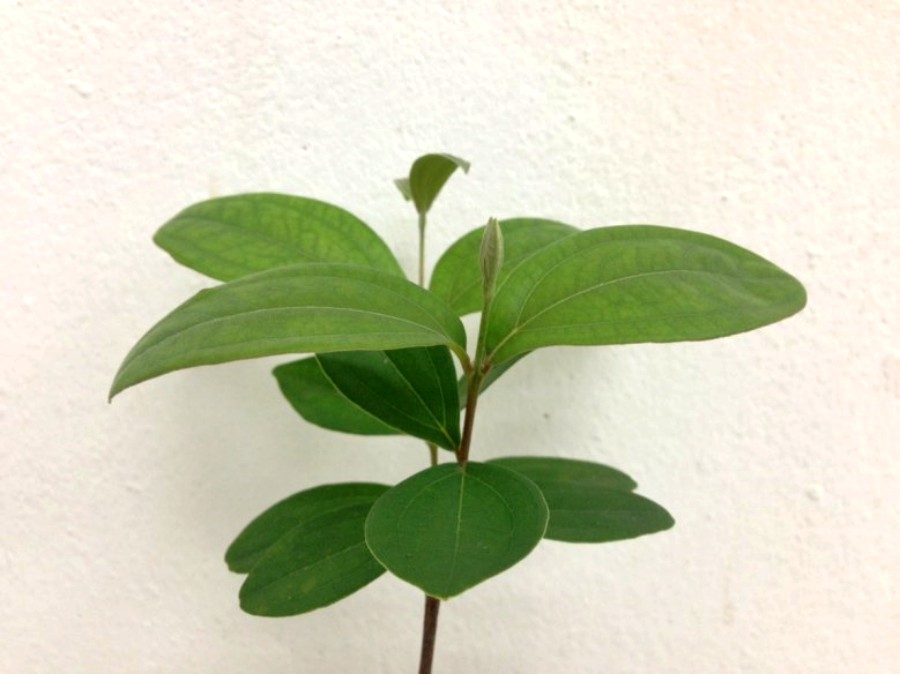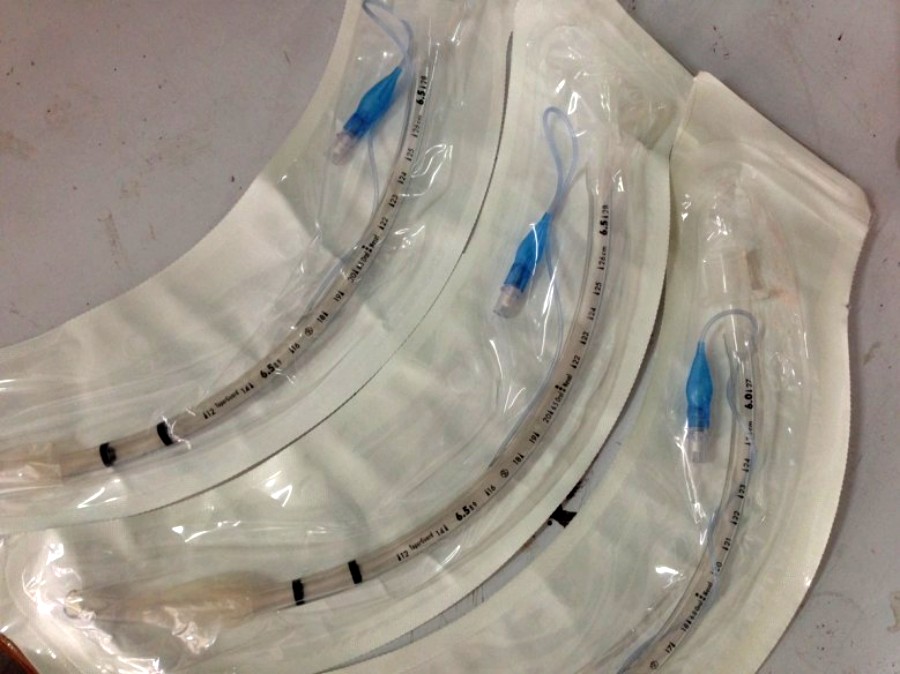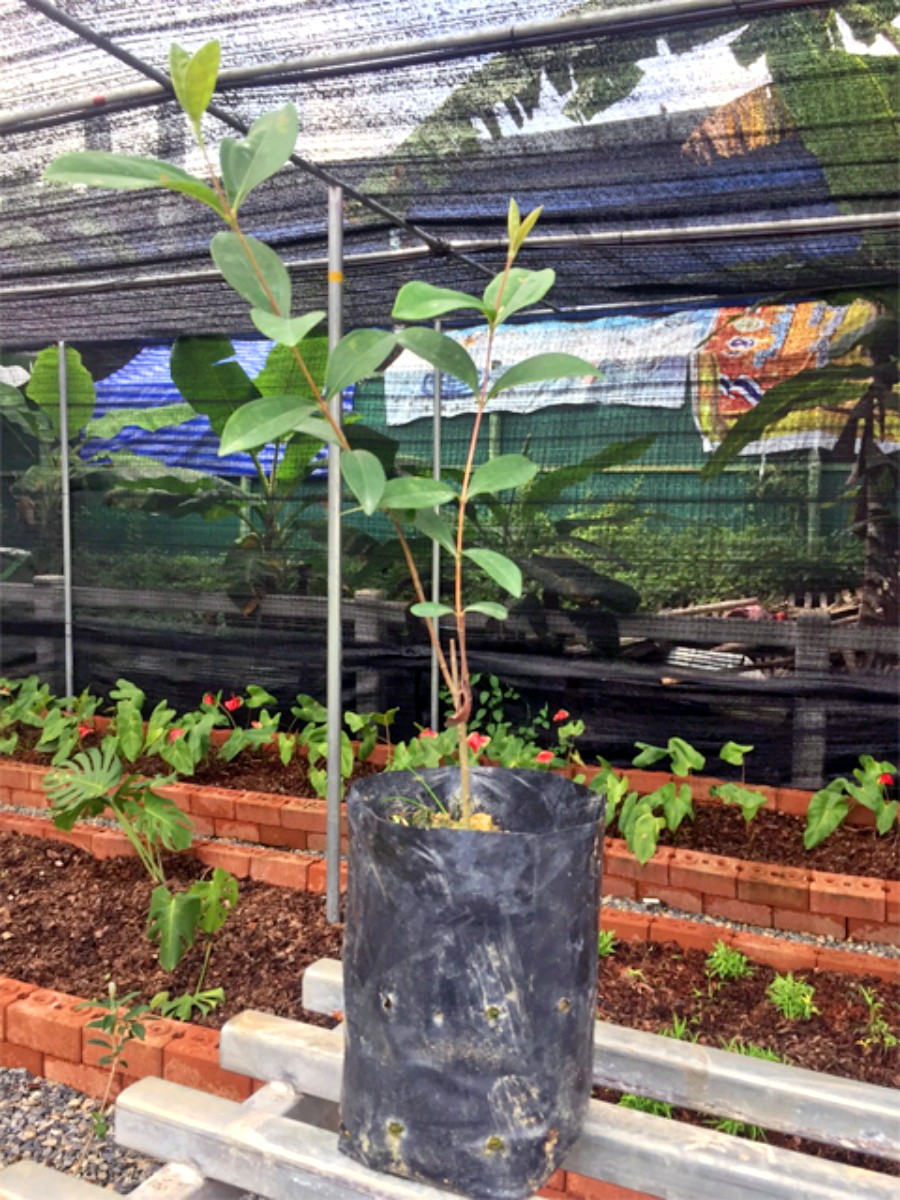The Department of Microbiology, Faculty of Science, together with the Natural Product Research Center of Excellence, Prince of Songkla University, discovered "Rhodomyrtone" from Rhodomyrtus tomentosa leaves and eucalyptus leaves through silver nanoparticle production process. The resulting compound was utilized in coating the surfaces of breathing tubes and rubber gloves in order to reduce antibiotic resistance, and decrease bacterial infections in patients. 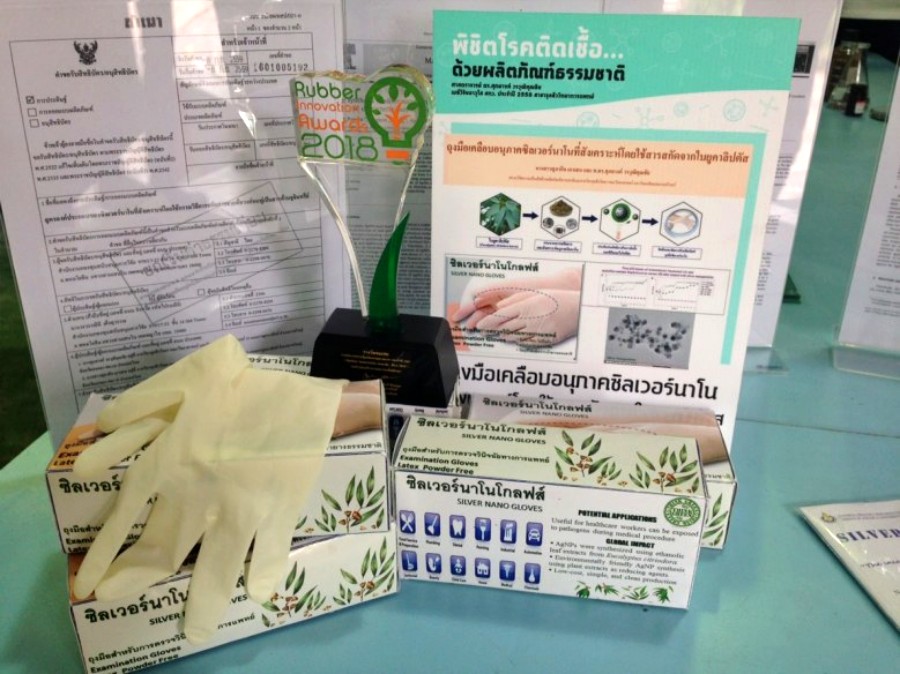
Infectious diseases caused by antibiotic-resistant bacteria are the leading cause of patient death, exacerbated by the lack of new types of antibacterial medicine production for the last 30 years. Searching for new medicine and new approaches to treatment is of essential importance. For this reason, the Thailand Research Fund (TRF) supports Prince of Songkla University to develop medical device coatings from natural substances in herbs by using nanotechnology, a method that resulted in the discovery that eucalyptus leaf extract has the ability to inhibit and destroy antibiotic-resistant bacteria.
Prof. Dr. Supayang Voravuthikunchai, TRF Senior Research Scholar and Director of the PSU Natural Product Research Center of Excellence, pointed out the importance of this research to medical treatment practitioners: the invention of a new type of coating on breathing tubes reduces bacterial biofilm formation on respiratory tube surfaces, areas that are difficult to access with antibiotics. Breathing tubes are used on ICU patients and for resuscitation after respiratory failure. It was found that continuous use for longer than 48 hours results in an infection risk of over 70%, and prolonged use for 5 days often causes pneumonia, leading to additional medical and hospital expenses or death.
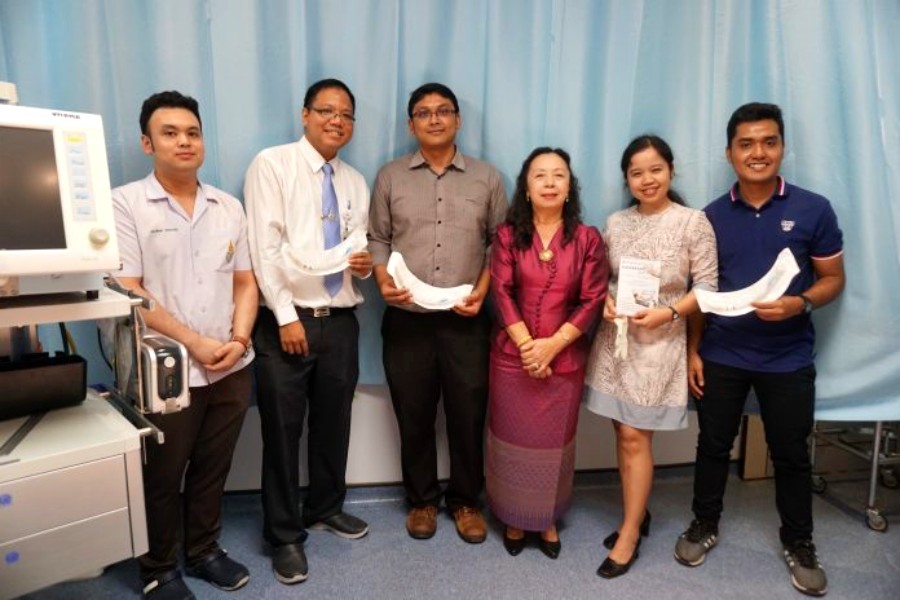
The research team responsible for the breakthrough consisted of Prof. Dr. Supayang and Mr. Sakarindra Thongthong, students under the Research and Researchers for Industries (RRI), The Thailand Research Fund (TRF), along with Dr. Chalongrat Daengngam, Department of Physics, PSU Faculty of Science, and Asst. Prof. Dr. Veerapong Vattanavanit, Songklanagarind Hospital and team. Together, they developed breathing tubes coated with silver nanoparticles synthesized from the leaf extract of Rhodomyrtus tomentosa, a local herb in Southern Thailand. In order to have a sufficiently large amount at the industrial level, they encouraged community enterprises in Ranot District, Songkhla Province, to grow this plant to increase income. In addition, the compound can be synthesized from the eucalyptus leaf remains in paper factory waste
One major source of infection in hospitals was found to be the widespread contact with the hands of medical personnel, causing bacterial contamination and leading to the infection of other patients. Using gloves acts as an important protection mechanism against this type of infection. However, currently rubber gloves are treated with harsh chemicals. The research team used antimicrobial substances from eucalyptus to replace these chemicals with nanoparticles for coating the outer and inner surface of rubber gloves. This new treatment improves the quality of rubber gloves in Thailand, and aligns with the government's policy to support the value of rubber, especially since rubber gloves are one of the most important export products of Thailand.
